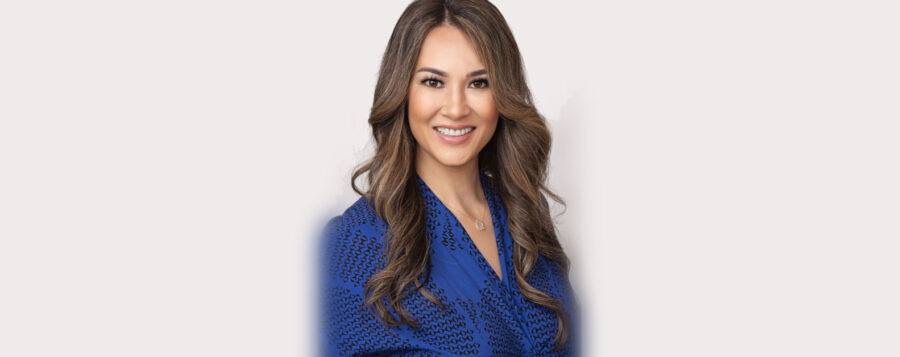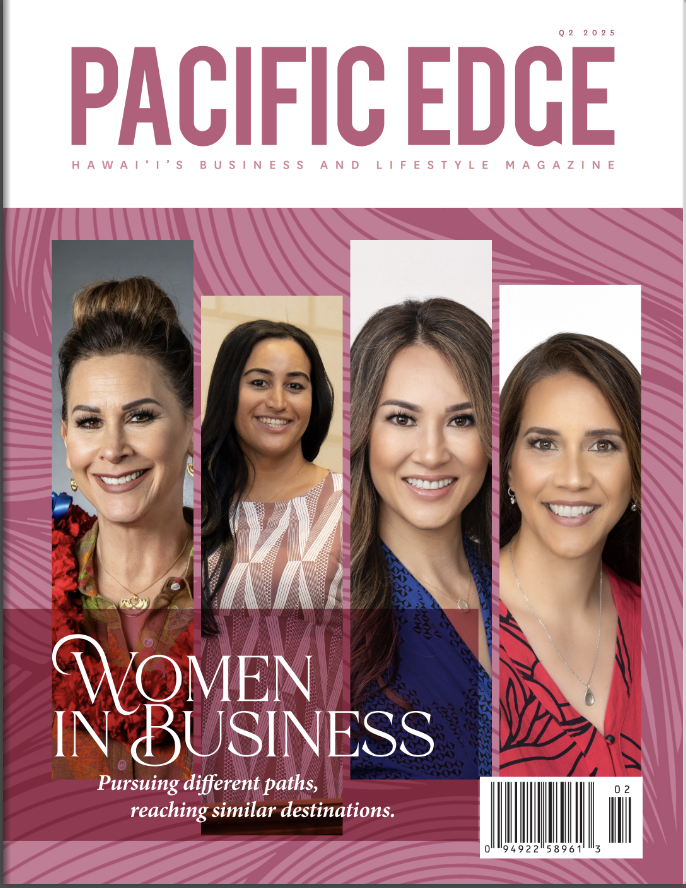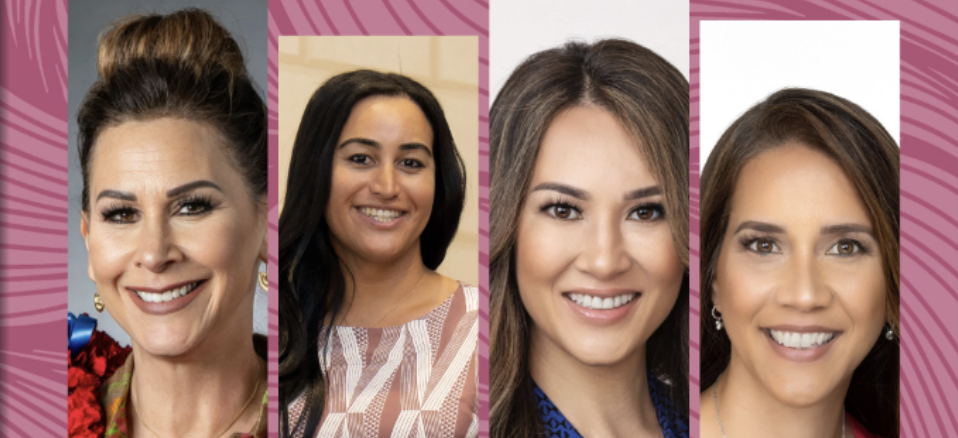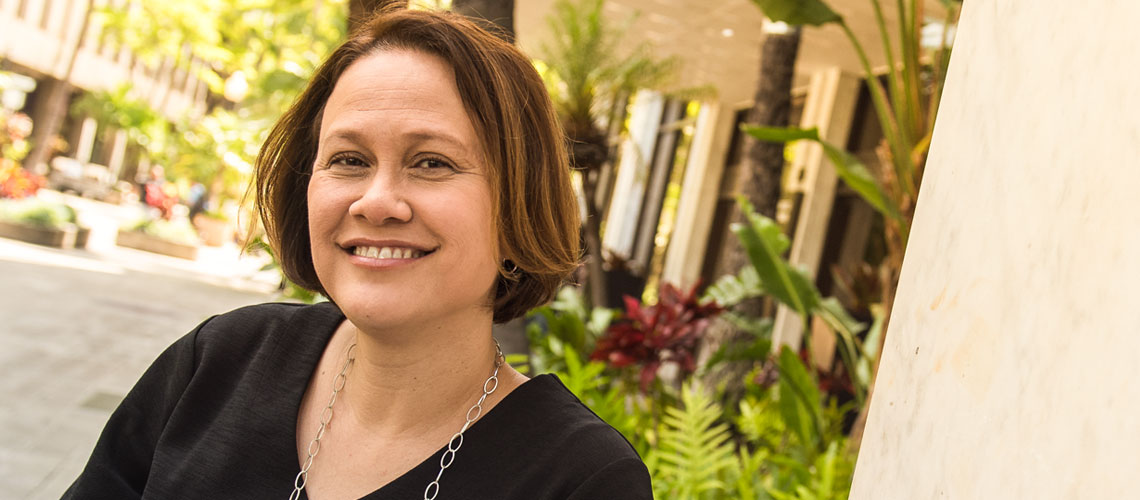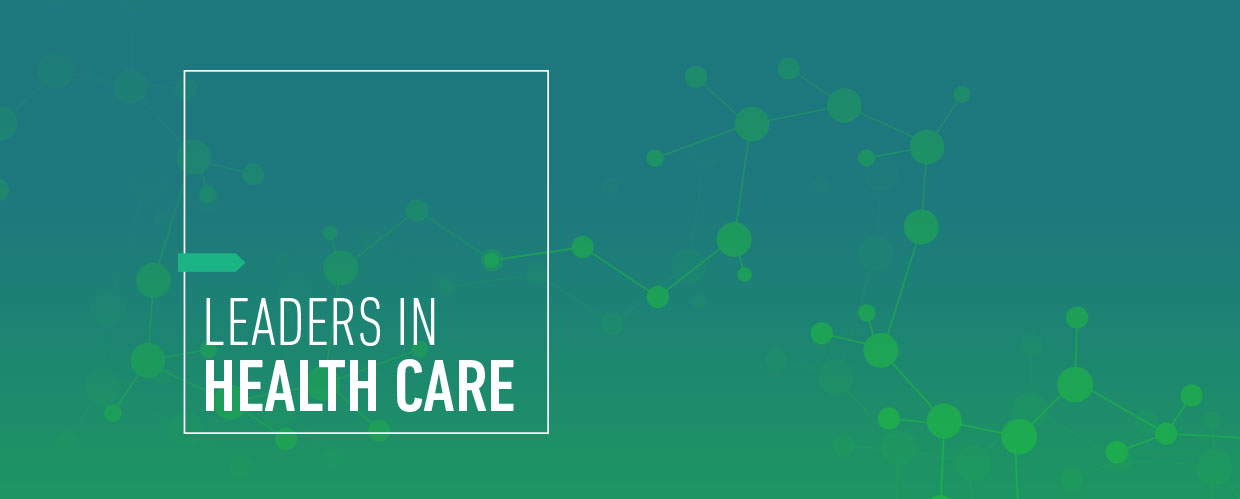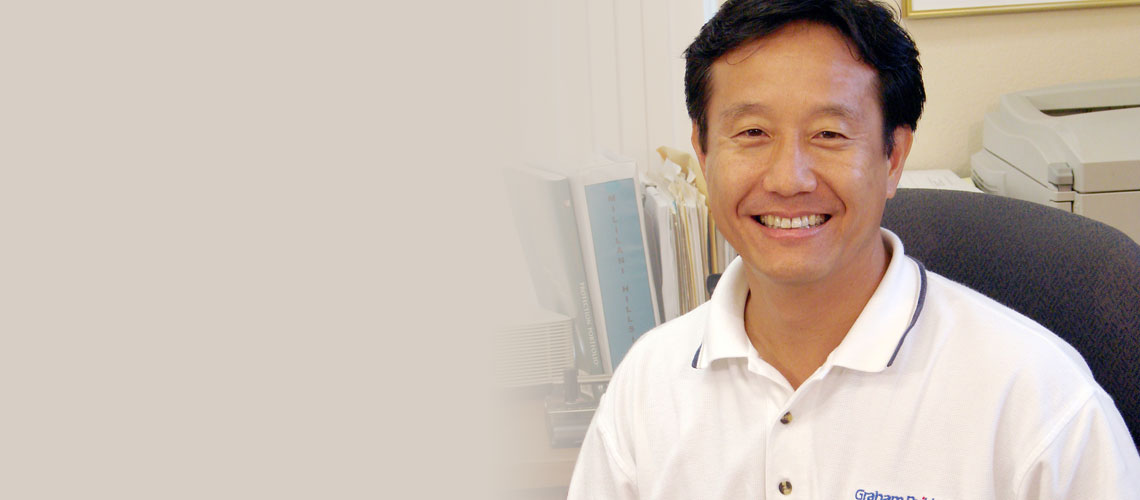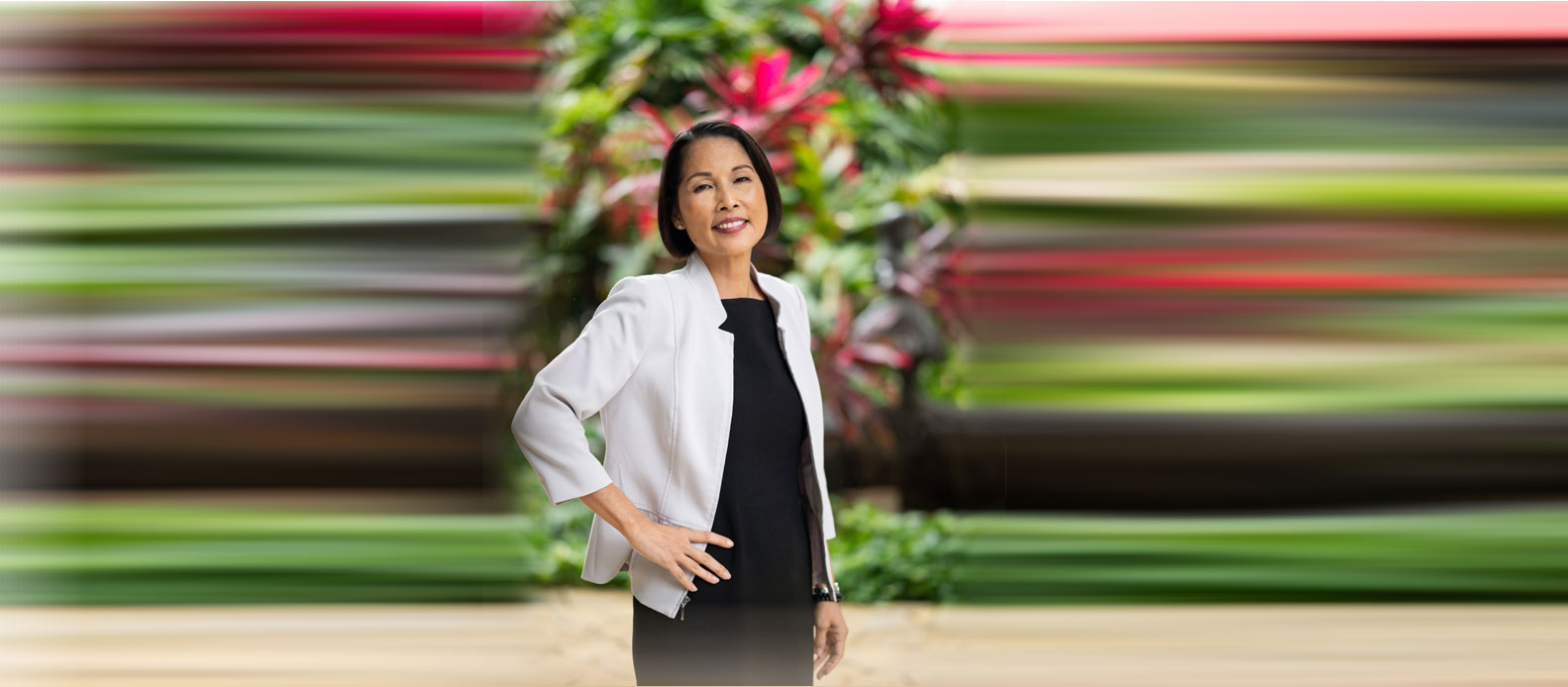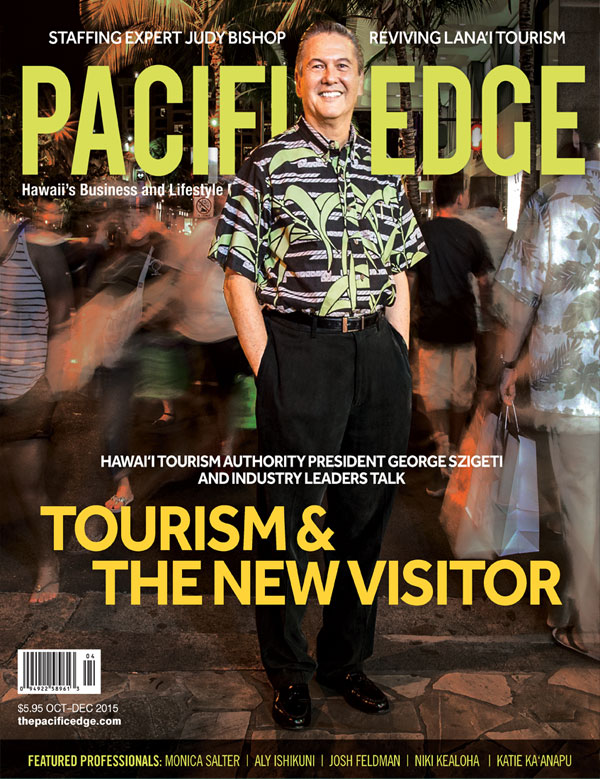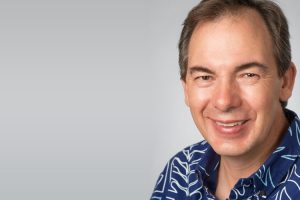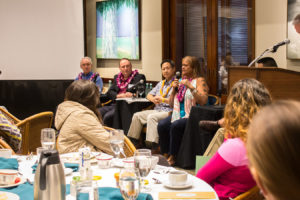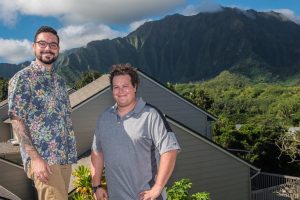What were some important turning points in your career that define you?
When Covid-19 hit, I was the Chief Administrative Officer at IHS, The Institute for Human Services. We needed a place for houseless people to quarantine or isolate safely, so I helped start the Temporary Quarantine and Isolation Center with the Department of Health. Originally, IHS’ role was to serve as service coordinators, but over a period of a few weeks, that role grew until IHS ended up taking over the medical care as well.
I was passionate about quality care for our patients, so I worked the floor on day one, and called every nurse I knew to join me. Many were already working their regular jobs, and doing overtime, but they responded to the call. Before we knew it, we had a full crew of tired but willing nurses and doctors from Queen’s, Hawaii Pacific Health, Kaiser, Kalihi Palama, Hawaii Homeless Health Care Hui and Navian Hawaii, all giving what they could to be sure any patient who needed care had the best. We were all there for the love of our lāhui (our people of Hawai‘i) and for the shared understanding that “if not us, then who?”
From this experience we uncovered a need to help stabilize people suffering from mental illness and drug addiction. We wove support and funding from the City and County of Honolulu to purchase and renovate an old veterinary center into a functional health center. Christine Camp from Avalon Group helped project manage the renovation. Bank of Hawaii and First Hawaiian Bank generously donated funds to purchase furniture and computers making the center complete. Lastly, the State legislature provided first year operating funding while we worked with the Department of Health for a more permanent funding stream. From these many hands, each doing what they could, an intricate public private partnership was woven and ‘Imi Ola Piha, O‘ahu’s first medically monitored drug detox and psychiatric stabilization center was born.
Not too long after, the Maui Wild Fires ravaged our lāhui. In the days after the fires, I volunteered as a nurse with Maui Medics and Project Vision to provide care for those affected. Everyone on the frontlines gave it their all. In one of our darkest times, those who showed up did so in big ways. I witnessed grass root organizations, big health systems, alternative healing providers all rise to the occasion, fill in for each other and bring something unique and needed to the table. The sense of camaraderie and kuleana (responsibility and privilege) in our health community lets me know I am right where I belong. From these experiences, I’ve learned what is possible when we leverage our lāhui. We can make what is impossible possible when we work as one.
What inspires you or is most exciting about your job, business, and industry, and what are the biggest challenges?
Currently as CEO of One Kalakaua Senior Living, Hawai‘i’s only fee simple Assisted Living Facility, I get to work to continuously improve how we deliver the best care for our kupuna, and do so at the most affordable price. I love this work because we can have a huge impact on people’s lives and it doesn’t have to cost a fortune.
I also love the power of connection (where people are the medicine). As a child, my grandmother was paralyzed. Despite that, she was one of the kindest and wisest people I knew. We loved her so much, but needed help with her care, so she lived at Hale Nani Skilled Nursing Facility. We visited or took her out regularly and for everything we couldn’t do for her, the staff members were right there caring for her like ‘ohana (family). That same aloha (love) that was shown to my grandmother, I want to pass it on and bring more healing to people’s lives.
The biggest challenge in health care is we need more smart and compassionate people willing to enter the field. We need schools to expand their health programs. We also need continued support from the federal government to be sure all people have access to basic health care, because without this, the whole of society suffers.
In a workplace that demands your utmost, what do you do for self- care?
My work is my self-care. I find it incredibly intense, yet also incredibly rewarding. I get a great sense of joy in taking care of others, especially in caring for our team. Doing things like supporting team members through challenges, giving pay raises when earned and helping with patient care when we are busy, fills my cup.
The other important thing I’ve learned over the years is that what work life balance looks like is different for everyone. For me, letting my family see my work, and vice versa, helps to hold things in balance. I bring my three-year-old daughter to work when we’re not busy. She’s able to walk around our dining room bringing smiles and warmth to our residents and staff. One time, she taught our fitness class for a few minutes! There were lots of laughs and even a hana hou (encore) request as she was just learning to count to 10 and the two-pound weights really were a workout for her.
Was the glass ceiling previously broken when you arrived at your company or organization, or were you the one who broke it? Did it change your perception or viewpoint of your management style?
In Hawai‘i, what an executive looks like has drastically changed over the years. Like me, there are more women and Kānaka Maoli (Native Hawaiians) in leadership roles. The challenges that once held us back have taught us to be resilient, work hard then harder still, and have an unwavering compassion because our journey to “get there” may have been tough.
Regardless of who is in the room, our biggest competitor will always be the person looking back in the mirror. This viewpoint has shaped my management style where my goal is to help each member of my team find their unique potential, then to unleash that talent, unrestricted. I hope that upon reflection, they are pleasantly surprised, proud of who they are, and amazed at all they have accomplished.
What’s in your future?
At One Kalakaua, we do an incredible job of bringing the best care to our kupuna at the best price. I want to do more of this for other vulnerable people in our community; including our Kānaka Maoli, homeless, mentally ill, medically frail, and of course more kupuna. I see myself building bridges between our private sector and government to address the needs of integrating preventative healthcare and social supports into housing models. Our community is stronger when we can keep vulnerable individuals safely housed with care always available.

